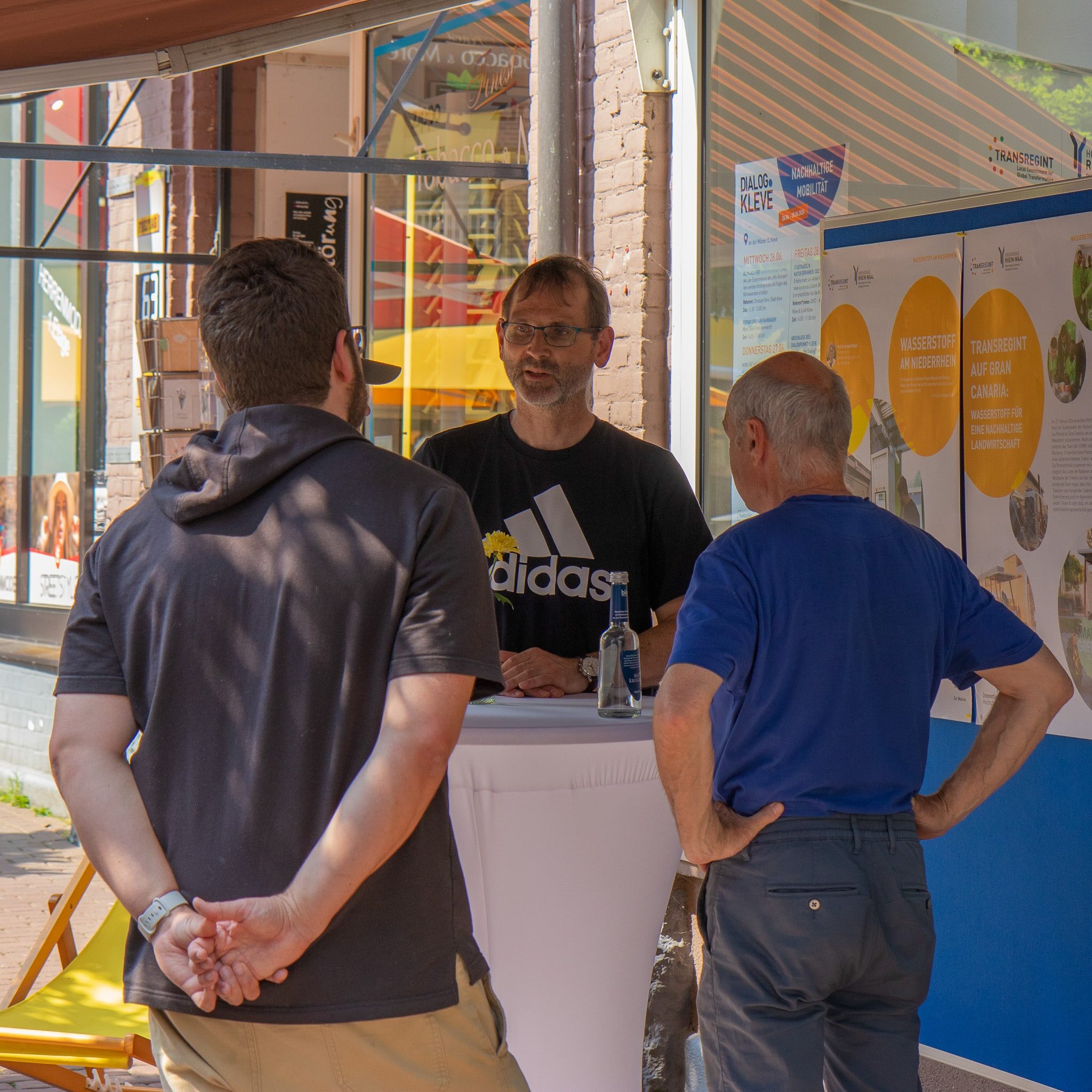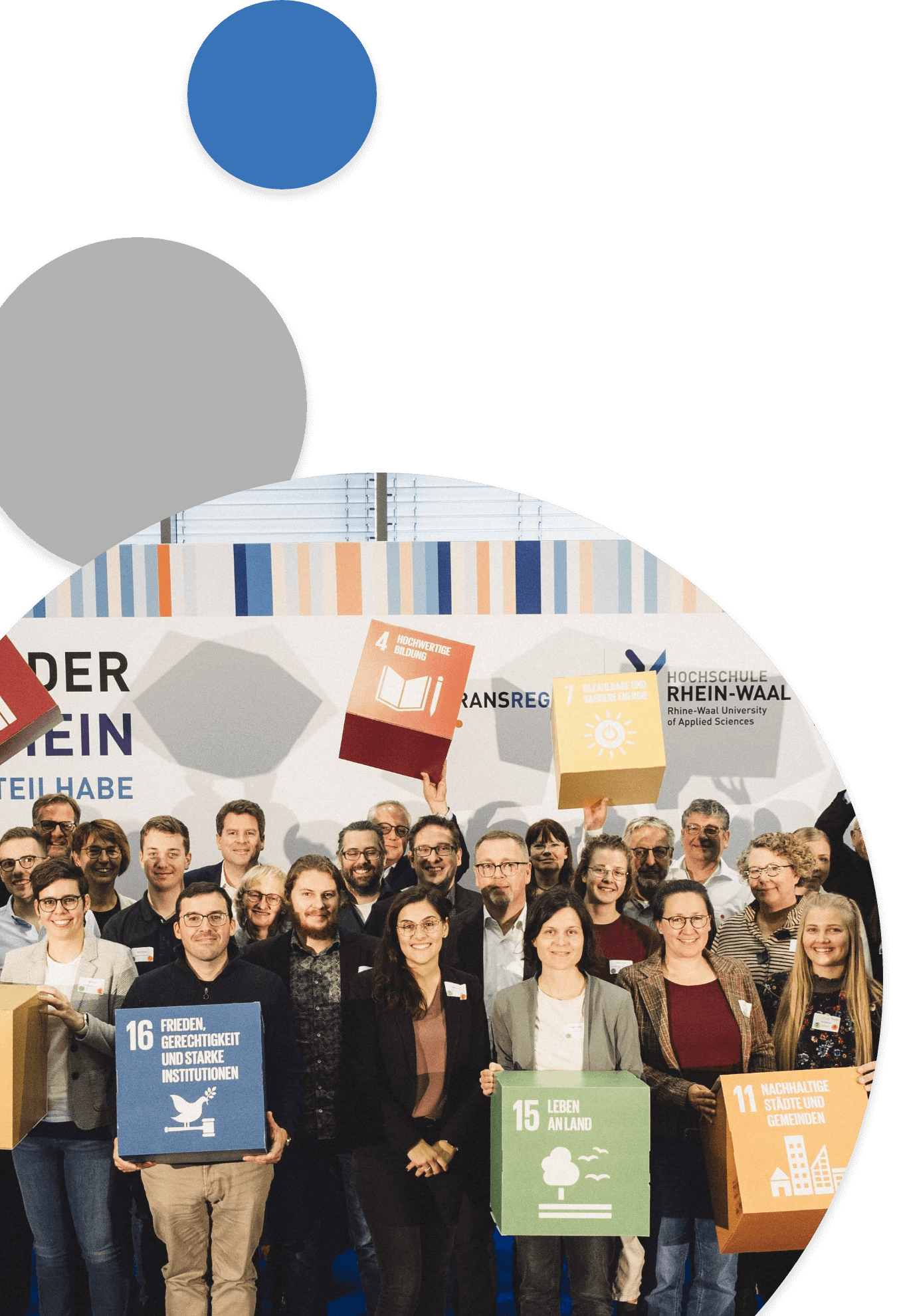
Lively discourse in the DialogPunkt: Hydrogen in the mobility transition
The space in front of DialogPunkt Kleve was transformed into a lively meeting place for discussions about hydrogen and sustainable mobility. Under the motto “Hydrogen on the Lower Rhine“, we invited people to an open discussion round and, together with many interested citizens, experienced an exciting afternoon on the topic of mobility of the future and hydrogen technology.
A hot topic
Dr André Wenda, research associate at Rhine-Waal University of Applied Sciences (HSRW), presented the latest research results and projects at HSRW relating to hydrogen. One particularly exciting topic was the story of a hackathon on Gran Canaria, in which HSRW students successfully expanded a tractor with a hydrogen drive as part of TransRegINT.
Lively debates and critical questions
With cool refreshments outside the doors of the Klever DialogPunkt, a lively discussion got underway. The topic of hydrogen cars as a future solution was scrutinised intensively. Many interested parties agreed that electric vehicles had an advantage in large cities due to the better charging infrastructure and would continue to dominate local personal transport in urban areas in the future. The idea of car-free zones in city centres was also debated.
Challenges and potential of hydrogen
A key point was the current infrastructure and the need for hydrogen refuelling stations. These are currently not available throughout the country; you would have to drive to the Netherlands or Mönchengladbach to refuel. Ethical questions regarding the production and mining of rare earths for batteries were also addressed. Finally, the electricity produced from the fuel cell is temporarily stored in batteries, as is the case with electric cars.
Should green hydrogen be produced in Germany or abroad? One question that was discussed in depth. Hydrogen offers the possibility of storing excess energy in the long term and without loss – a clear advantage over batteries, as Dr André Wenda had previously explained: “In contrast to batteries, hydrogen can store energy without loss even for months, which is a very decisive advantage.”
Sustainable mobility and visions for the future
With the arrival of NIAG board member Peter Giesen, the discussion returned to practical applications. E-buses were purchased from NIAG because of their rapid availability, but the potential of hydrogen for vehicles with high energy requirements, such as buses and lorries, was also emphasised. Hydrogen, if produced green, is emission-free and therefore offers a promising solution for the future.
Conclusion: hydrogen has potential
Towards the end of the event, it was clear that the participants were well informed and some were even experts. Everyone agreed that hydrogen is an excellent energy storage medium and has great potential for the future. The consensus was: the main thing is to take initiatives and engage in dialogue. Hydrogen provides solutions for the challenges of the future and definitely has its place in sustainable mobility.
The event at DialogPunkt Kleve showed how important discourse and networking are in order to find and promote sustainable solutions. We look forward to further stimulating discussions and would like to thank all participants for their commitment and valuable contributions. Stay tuned and find out about our upcoming events and projects here.
We look forward to seeing you and to the next discussions where we can shape the future together!




Kommentare